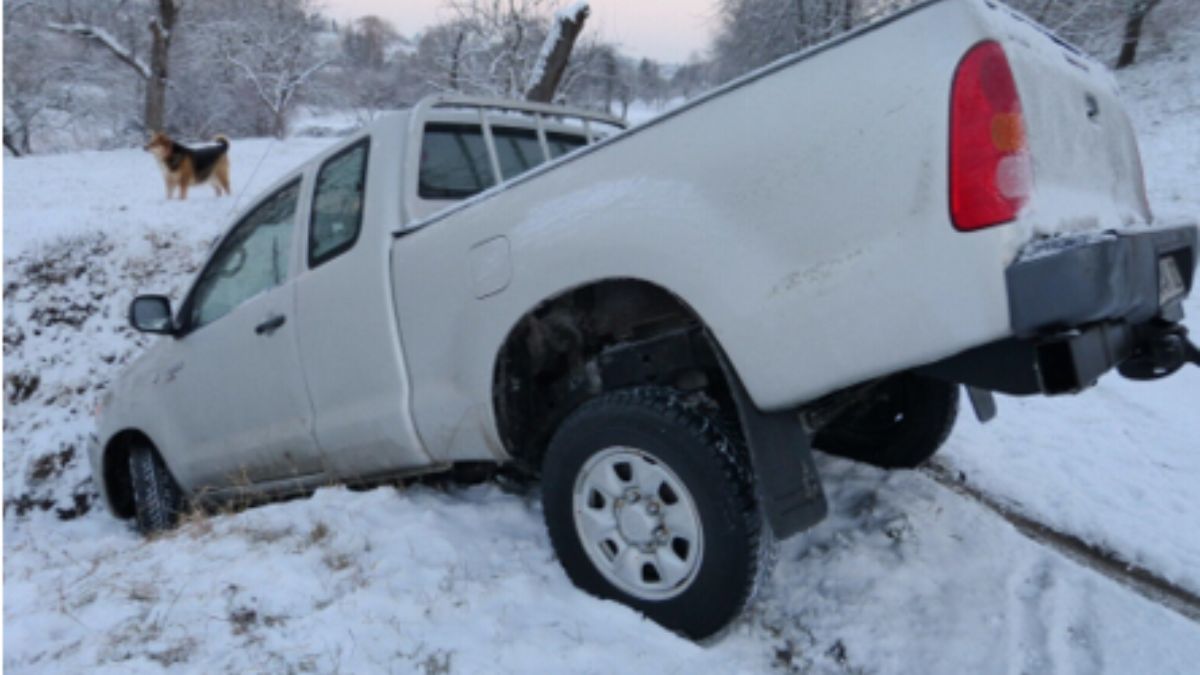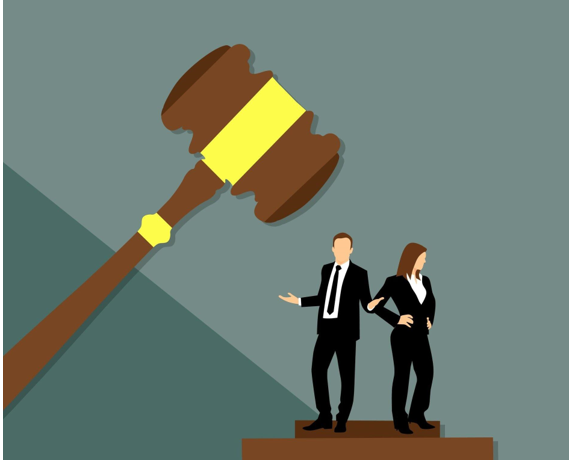LAW
Legal Protection 101: Key Steps Following a Car Accident in Las Vegas

Car accidents can happen when you least expect them, and they often leave us feeling overwhelmed and unsure about what to do next. This is especially true in a city like Las Vegas, where traffic is busy and accidents can occur frequently.
In this article, we’ll outline the key steps you should take after a car accident in Las Vegas to protect your legal rights. By following these steps, you can ensure that you are properly taken care of, both medically and legally. For an in-depth look at your legal rights after a car accident, contact the experts at The Bourassa Law Group.
1. Check for Injuries
The safety of all individuals involved in the accident should be your top priority. As soon as the accident occurs, check yourself and your passengers for injuries. After that, check on the occupants of the other vehicles involved. If anyone is seriously injured, call 911 immediately. It’s crucial to get medical help on the scene, even if injuries seem minor, as some injuries may not be immediately apparent.
2. Move to a Safe Location
If the accident is minor and it’s safe to do so, move your vehicle to the side of the road to prevent further accidents or traffic disruptions. Turn on your hazard lights to alert other drivers. However, if the accident is more serious and the vehicles are not safe to move, leave them in place and follow the next steps.
3. Contact the Police
In Las Vegas, it’s essential to report any car accident to law enforcement. Call 911 or the non-emergency police number (702-828-3111) to report the accident. An official police report can be crucial in determining liability and establishing the facts of the accident. When the police arrive, be honest and cooperative with their inquiries.
4. Exchange Information
After ensuring everyone’s safety, exchange information with the other parties involved in the accident. This information should include:
- Names and contact details
- Insurance information
- License plate numbers
- Vehicle descriptions
It’s crucial to gather this information, as it will be necessary for insurance claims and legal proceedings.
5. Document the Scene
Use your smartphone or a camera to document the accident scene. Take photos of the vehicles’ positions, damage, and any relevant road signs or signals. This visual evidence can be valuable when dealing with insurance companies and legal matters. Additionally, write down a brief description of what happened while the details are fresh in your mind.
6. Gather Witness Information
If there are any witnesses to the accident, collect their contact information as well. Witnesses can provide vital statements that may help clarify the events leading up to the accident. Their testimony can be especially valuable if there are disputes about liability.
7. Seek Medical Attention
Even if you don’t feel seriously injured, it’s crucial to seek medical attention after an accident. Some injuries, such as whiplash or internal injuries, may not manifest symptoms right away. Delayed treatment can jeopardize your health and complicate insurance claims. Visit a doctor or hospital for a thorough evaluation.
8. Contact Your Insurance Company
Report the accident to your insurance company as soon as possible. Provide them with the information you gathered at the scene, the police report, and any medical documentation. Be honest and accurate in your account of the accident. Your insurance company will guide you through the claims process.
9. Consult an Attorney
Depending on the circumstances of the accident, you may need legal representation. If you or the other party involved disputes liability or if there are significant injuries, it’s advisable to consult with a personal injury attorney in Las Vegas. An attorney can help protect your legal rights and navigate the complexities of the legal system.
10. Preserve Evidence
Keep all records and documents related to the accident, such as medical bills, repair estimates, and correspondence with insurance companies and attorneys. These records will be essential when pursuing a legal claim or seeking compensation for damages.
11. Understand Nevada’s Comparative Negligence Law
Nevada follows a comparative negligence system, meaning that multiple parties may share liability for an accident. Your compensation may be reduced if you are found partially at fault. It’s essential to understand how this law may affect your case and work with your attorney to establish a strong argument for your innocence.
12. Don’t Discuss the Accident on Social Media
In today’s digital age, it’s crucial to be cautious about what you share on social media after an accident. Anything you post could potentially be used against you by insurance companies or the opposing party’s legal team. Refrain from discussing the accident or your injuries online until your case is resolved.
13. Statute of Limitations
Be aware of the statute of limitations for personal injury claims in Nevada. You generally have two years from the date of the accident to file a lawsuit. Failing to meet this deadline could result in losing your right to pursue a claim.
14. Consider Mediation
In some cases, disputes after a car accident can be resolved through mediation. Mediation involves a neutral third party who assists both parties in reaching a mutually agreeable settlement. It’s often a faster and less adversarial process compared to going to court. If you and the other party are willing to negotiate, mediation can save time and money. However, it’s essential to have your attorney present during mediation to ensure your rights and interests are protected.
15. Learn From the Experience
While dealing with the aftermath of a car accident can be challenging, it’s also an opportunity to learn and grow from the experience. Reflect on the factors that contributed to the accident, whether it was a lapse in concentration, poor road conditions, or the actions of other drivers. This self-awareness can help you become a safer driver in the future.
Additionally, consider taking a defensive driving course to enhance your skills and reduce the risk of future accidents. Many courses are available in Las Vegas and can provide you with valuable tools to stay safe on the road.
Conclusion
Car accidents are stressful and overwhelming, but knowing the key steps to take after a car accident in Las Vegas can help protect your legal rights and ensure you receive the compensation you deserve. Remember to prioritize safety, document the scene, and seek medical attention as needed. Contact your insurance company, consult with an attorney, and preserve all relevant evidence. By following these steps, you can navigate the aftermath of a car accident in Las Vegas with confidence and protect your legal rights.
LAW
How Auto Accident Legal Services Can Help You

If you’ve been in a car accident, getting legal help early can make the process smoother. Auto accident legal services guide you through the steps that follow.
They help you understand your rights, deal with insurance, and build a strong case. You don’t have to navigate this alone.
The right support can protect your time, money, and well-being. Here’s how auto accident legal services can help you.
Understand Your Legal Rights
After an accident, most people don’t know what they’re entitled to. Legal services explain your rights clearly. Whether it’s medical bills or lost wages, you should know what to expect.
A lawyer can tell you what compensation is possible. They also make sure insurance companies don’t take advantage of you. Having that knowledge helps you make smart choices.
Help with Insurance Claims
Filing a claim isn’t always simple. Insurance companies often try to minimize payouts. A legal team can step in and handle the paperwork and follow-ups.
They’ll know what documents to present and how to argue your case. This support reduces your stress and speeds up the process. You’re less likely to get pushed into a low offer.
Build a Strong Case
Auto accident legal services collect details that matter. They gather evidence like photos, witness statements, and reports. This makes your case more solid.
Lawyers know how to frame things so your side is clear. A strong case can help settle things faster or win at trial. In a place like San Francisco where roads are busy, this kind of support is valuable.
Negotiate a Fair Settlement
Many cases end in a settlement, not a courtroom. Legal professionals know what’s fair based on your injury and damages. They negotiate with the other party’s insurance or legal team.
This increases your chance of getting proper compensation. They won’t let you settle for less than what’s reasonable. You stay informed throughout the talks.
Provide Representation in Court
If a settlement doesn’t happen, your case may go to court. That’s where legal representation matters most. A lawyer knows how to present your story to a judge or jury.
They’ll prepare arguments, question witnesses, and stick to deadlines. This helps you stay focused on recovery. You won’t need to face the legal system alone.
Support with Long-Term Impact
Some injuries show up later or cause lasting issues. Legal services account for these long-term effects. They’ll include future medical care, therapy, or income loss in your claim.
You don’t want to overlook anything that could affect your life down the road. Their goal is to cover both current and future needs. This protects your financial well-being.
Explain Time Limits and Deadlines
Every state has its own rules about how long you have to file a claim. Legal services make sure you don’t miss any deadlines. Missing even one could cost you your right to compensation.
They track all dates and requirements for you. This keeps your case active and avoids unnecessary delays. You stay focused on healing while they handle the legal timeline.
Help You Understand Liability
Knowing who is at fault isn’t always clear. Auto accident legal services can investigate and break it down for you. They look at reports, witness statements, and local laws.
This helps show who should be held responsible. Clear liability is key to a strong case. It also affects how much you can recover.
Assess the Full Value of Your Claim
Many people only think of medical bills when they file a claim. Legal services look at everything, including lost wages, pain, and emotional distress. They add up short-term and long-term costs.
This gives you a full picture of what you deserve. Without this, you might settle for far less. A complete assessment leads to better results.
Protect You from Legal Tactics
The other party’s legal team might try to shift blame or offer a low deal. A lawyer can spot these tactics fast. They know how to respond and keep your case strong.
Auto accident legal services work to protect your rights at every step. You won’t be caught off guard or tricked into a bad agreement. That kind of defense can make all the difference.
Keep You Updated on Your Case
It’s frustrating when you’re left in the dark. Legal services keep you informed about your case status. They explain what’s happening and what to expect next.
You won’t have to chase answers or feel confused. Regular updates help you stay in control. Communication is part of the support they provide.
Offer Emotional Relief During a Stressful Time
Dealing with the aftermath of an accident is overwhelming. Legal services step in so you’re not handling everything alone. They manage the legal side while you focus on recovery.
Having someone in your corner brings peace of mind. You won’t need to second-guess every decision. That kind of support helps reduce stress and builds confidence.
Connect You with Other Helpful Resources
Sometimes you need more than just legal help. Auto accident legal services can refer you to trusted doctors, therapists, or specialists. They often work with a network of professionals.
This makes it easier to get the care you need without delays. They help you rebuild in every area, not just in court. Getting connected early can improve your recovery.
Review Settlement Offers Carefully
Insurance companies may send quick offers hoping you’ll accept without question. Legal services review these offers to see if they truly cover your needs.
They compare the amount to your actual damages, both present and future. If the offer is too low, they’ll push for better terms.
This protects you from settling for less than you deserve. Having a legal expert check every detail ensures you’re not shortchanged.
Auto Accident Legal Services Can Help You
Auto accident legal services take the pressure off during a tough time. They handle the hard parts so you don’t have to guess or struggle alone.
Whether it’s dealing with insurance or standing up in court, they’ve got you covered. You get peace of mind knowing someone is fighting on your side.
Don’t wait too long to get the right help. The sooner you act, the better the outcome. Take the next step and talk to a legal professional today.
Read more topics? Visit our blog page!
LAW
Understanding the Divorce Process: Step-by-Step Guide

The divorce process can be hard to understand. It often feels overwhelming, but knowing what to expect can make it easier. Each stage is important and has its challenges.
Understanding the divorce process helps people be prepared. Many want to know what will happen next. Being informed can ease worries during such a difficult time.
Keep reading this article to learn more about the divorce process.
Deciding to Divorce and Understanding Your Options
Ending a marriage is a serious decision that requires time and thoughtful consideration. People often consider counseling, legal advice, or time apart before moving forward. Some couples may choose mediation, while others go through court.
Once the decision is made, it’s important to tell your spouse. Talking calmly can help ease tension and avoid conflict. This may also help both sides agree on the best way to proceed.
Filing for Divorce and Paying Initial Court Fees
The first step in the divorce process is to file the required paperwork. This involves completing forms that provide details about the marriage and stating the reasons for seeking a divorce. Filing can typically be done online or at the local courthouse.
Once the forms are submitted, there are usually initial court fees. These fees may vary depending on the jurisdiction and involve a small expense to start the legal process. Knowing this upfront helps prepare financially for the steps moving forward.
Serving Legal Papers and Awaiting a Response
After filing, the next step is to serve legal papers to the spouse. This process ensures that they are aware of the divorce action and have a chance to respond. Properly serving papers is crucial to progressing the divorce.
After the papers are served, a waiting period begins. The spouse must respond within a specific timeframe, typically around thirty days. This response can determine the next steps in the divorce process, from negotiation to potential hearings.
Calculating Legal Costs and Attorney Fees
Understanding legal fees is an important part of planning for divorce. Costs can include attorney rates, court filings, and document services. These can vary depending on how simple or complex the case is.
The divorce cost in South Carolina depends on the type of process you choose. Uncontested cases are usually more affordable and quicker to resolve. Setting a budget early can help reduce stress and give you more control during this time.
Disclosing Finances and Dividing Property
A complete disclosure of finances is necessary during divorce proceedings. Both parties will need to provide information about income, assets, and debts. Honesty during this process is essential to facilitate a fair division of property.
Dividing property can often be contentious. It involves determining what is separate and marital property. Discussions and negotiations around these issues can significantly affect both parties’ futures.
Gaining Clarity Through the Divorce Process
The divorce process may seem confusing at first, but each step has a clear purpose. When you know what to expect, you can prepare better for every stage. This knowledge helps reduce stress and supports better decisions.
Taking the time to learn the divorce process can protect your rights and your future. Small details can make a big difference in the outcome. Stay informed and consider getting professional guidance if needed.
Did you find this article helpful? Visit more of our blogs!
LAW
Empowering Your Legal Rights in Family Law

Understanding your legal rights in family law is crucial. Whether you face divorce, custody, or support issues, knowing your rights helps you make smart choices.
This blog will guide you through the basics. You’ll learn how to protect yourself and your loved ones. With the right knowledge, you can stand strong and take action.
Let’s explore how to empower your legal rights in family law today.
Understanding Legal Rights in Family Law
Your legal rights in family law vary depending on your situation. It is important to recognize these rights before engaging in any legal process. Knowing them can make a significant difference in your case.
For instance, you have the right to fair treatment during divorce proceedings. Both parties are entitled to legal representation and advice to protect their interests.
Consulting a Family Law Attorney
Hiring a family law attorney is crucial for understanding your legal rights. Their expertise can guide you through complex legal matters. They can help explain your rights regarding child custody, adoption, and divorce.
A family law attorney provides valuable insights into spousal support laws. For helpful legal guidance, check out these family law services in Redding. They can offer tailored legal advice according to your specific needs.
Child Custody Rights
Child custody rights are a primary concern in family law cases. Parents have the right to seek custody and visitation of their children. Understanding these rights helps ensure that the child’s best interests are prioritized.
In most cases, courts favor shared parenting, which promotes a healthy relationship between both parents and the child. Knowing your rights can affect the outcome of custody arrangements.
Divorce Legal Advice
Divorce legal advice is essential when facing marital separation. An attorney can help you understand your rights regarding property division and spousal support. They can also assist in negotiating terms that best suit your needs.
Understanding the implications of divorce on your financial situation is crucial. Legal advice can clarify potential outcomes and help you make informed choices.
Spousal Support Laws
Spousal support laws can significantly impact your financial future post-divorce. These laws determine how much support one spouse may receive from the other. Your legal rights surrounding this issue should be well understood.
An attorney can guide you in negotiating spousal support arrangements. They can help ensure that any support is fair and just, taking into account both spouses’ financial needs.
Protecting Property and Finances
Dividing property during a family case can be hard. You need to know what belongs to you and what is shared. Keeping good records can help protect your money and assets.
The court will look at many things when splitting property. This includes income, debts, and when the property was bought. Fair division helps both sides move forward.
Take Control of Your Legal Rights in Family Law Matters
Understanding your legal rights in family law helps you stay protected. It gives you the power to make smart choices. Whether it’s about your children, money, or future, knowledge is key.
Getting the right help can make things easier. Always ask questions and learn your options.
Stay calm and focused through the process. With the right steps, you can protect what matters most in your life.
Did this article help you? If so, take a look at some of our other blog posts for more informative reads.
-

 HEALTH1 year ago
HEALTH1 year agoIntegrating Semaglutide into Your Weight Loss Plan: A Practical Guide
-

 HOME IMPROVEMENT1 year ago
HOME IMPROVEMENT1 year agoHow to Choose the Perfect Neutral Area Rug for Every Room
-

 LAW1 year ago
LAW1 year agoPost-Divorce Considerations in California: Modifications and Long-Term Planning
-

 LAW1 year ago
LAW1 year agoTeenage Drivers and Car Accidents in California: Risks and Parental Liability
-

 CONSTRUCTION1 year ago
CONSTRUCTION1 year agoConstruction Site Safety Regulations in New York and Your Rights as a Worker
-

 FINANCE1 year ago
FINANCE1 year agoDigital Asset Management in Florida Estate Planning
-

 LAW1 year ago
LAW1 year agoKentucky’s School Football: Concussions, Injuries, and Legal Options
-

 LAW1 year ago
LAW1 year agoGang Activity and Criminal Charges in CA: Protecting Your Rights


